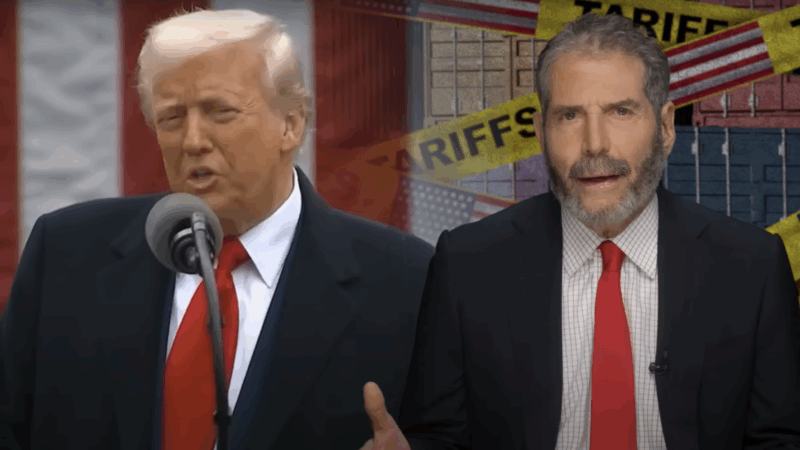3 Myths About Tariffs
"If this is the end of my American dream," says one small business owner, "I'm going to go down swinging."

Last month, President Donald Trump proudly announced, "Liberation Day!…The day American industry was reborn!"
Reborn because of his tariffs, which he called, "the most beautiful word in the dictionary."
This is just wrong.
The first time he was president, Trump raised tariffs on steel. That helped American steelmakers. They hired 1,000 more workers. Yippee.
But more American companies make things out of steel. They were hurt. The result: America lost about 75,000 jobs.
Gain a thousand jobs, lose 75,000. Doesn't sound like "liberation" to me.
Former President Joe Biden didn't learn the lesson. He increased Trump's tariffs.
That's Myth 1: Tariffs protect American jobs.
Myth 2: We need tariffs because America runs trade deficits with other countries.
We do run deficits. Our trade deficit with China so far this year is more than $70 billion.
So what? I run a trade deficit with my supermarket. I give them money. They never give me money.
That's fine. It's freedom. The economy sorts it out.
There's nothing bad about a trade deficit or good about a surplus. America ran a trade surplus during the Great Depression.
Myth 3: We need tariffs because global trade hollowed out America's manufacturing base.
I hear that all the time, from politicians, comments on my X feed, and media commentators.
"Disastrous economic policies have hollowed out the manufacturing base, sending jobs and production overseas," influencer Mario Nawfal posted on X.
"Large and persistent annual U.S. goods trade deficits have led to the hollowing out of our manufacturing base," reads a White House fact sheet.
It's silly. They're just wrong.
American industrial output is near an all-time high.
Unemployment, now at 4.2 percent, is much lower than it was when I grew up.
Politicians never learn. In 1930, at the start of what became the Great Depression, clueless legislators Reed Smoot and Willis Hawley got Congress to pass what became known as the Smoot-Hawley Tariff Act.
"It deepened and lengthened the Depression," writes the Foundation for Economic Education.
Still, Trump is right to complain about countries that put nasty tariffs on American goods. In my new video, his press secretary points out that "Canada…[imposes a] nearly 300 percent tariff…[on] American cheese and butter…India, a 150 percent tariff on American alcohol."
This mostly hurts Canadian and Indian consumers, but it also hurts American businesses.
Seems sensible, then, for Trump to pressure those countries and get them to lower their tariffs.
And Trump says he's making deals! He got China to reduce tariffs to 10 percent.
But China charged 8 percent before Trump raised tariffs during his first term. Sigh.
Some countries, in response to Trump's moves, raised their tariffs. Canada announced retaliatory tariffs on $107 billion worth of U.S. goods.
Some small business owners, some with the help of the Liberty Justice Center, have sued Trump, arguing that his use of emergency powers to enact the fees was illegal.
"If this is the end of my American dream," says one, "I'm going to go down swinging."
Wine importer Victor Schwartz says there's only one way out for Trump.
"Admit you made a bad decision and let's move on. That's what we do in business all the time. Free trade is really a beautiful thing."
It is. We rarely notice how it enriches us, but it does. By bringing in cheaper goods and services from all around the world, it lets American workers specialize in areas where Americans do things best.
That leaves almost all of us better off.
Politicians should leave that alone.
COPYRIGHT 2025 BY JFS PRODUCTIONS INC.
